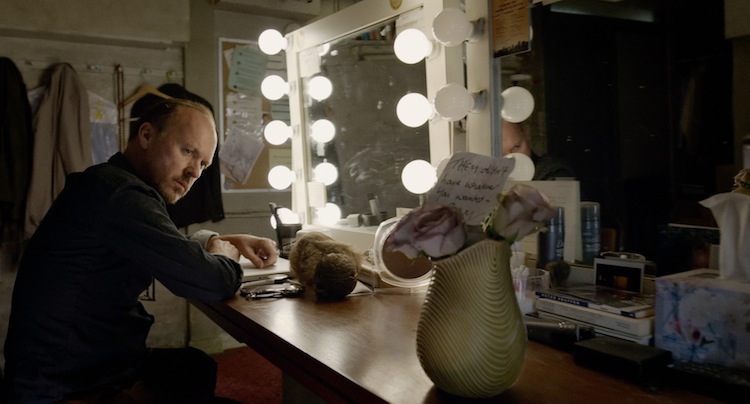
Iñárritu’s latest movie is his least despondent film, an introspective experience that’s packed to the brim with joy, energy and imagination.

Iñárritu’s latest movie is his least despondent film, an introspective experience that’s packed to the brim with joy, energy and imagination.
Overflowing with vividly imagined set pieces, Birdman (or the Unexpected Virtue of Ignorance) is a frenetic, beautiful movie with a compelling story at its center. The movie opens on Michael Keaton’s Riggan Thomson levitating in his dressing room, in one of the movie’s several implementations of magical realism. “How did we end up here?” growls his internal monologue. “You were a movie star, remember?” Throughout Birdman the voice in Riggan’s head returns with self-aggrandizing statements that nag at Riggan’s outer self-awareness. He’s an actor who’s been humbled by his years out of the spotlight. Like Keaton in real life, Riggan was the star of a popular superhero film franchise, the titular “Birdman,” however, in the film Birdman Riggan is staging a Broadway play in which he’s writing, directing and starring, hoping to reclaim some long-lost glory.
Shot in gorgeous long-takes by director Alejandro G. Iñárritu (who’s dropped the “Gonzales” on this film) and cinematographer Emmanuel Lubezki (Children of Men, Gravity), Birdman uses clever staging and editing tricks to make 98% of the film look as if it’s one long steadicam shot. Actors dip and dive into and out of the camera’s way while it makes 360-degree turns around the room. New characters will step into a scene then walk to the next scene through the busy backstage Broadway hallways while the camera hangs just behind their heads. Riggan walks with Edward Norton’s Mike Shiner, and the all-drums score becomes momentarily diegetic as Riggan flips a quarter to a drummer on the street. The whole endeavor becomes chaotic but completely enchanting, rarely allowing for a moment of rest.
Birdman relies on the flexible performance from Michael Keaton. With his character’s life thrown into straitened circumstances, his underlying egotism won’t let him fully accept his situation. In moments of rage, Riggan utilizes telepathy to toss items across his dressing room, fueled by his damaged self-image. These abstractions serve to symbolically elevate many scenes, and contained within Lubezki’s no-cut shots they come as delightful surprises during the film. But even in these instances, Keaton keeps the performance grounded in reality. He embodies the film’s bipolar tendencies, smoothly turning from somber confessions to searing punch lines.

Throughout the movie, Birdman takes aim at the complexities of the human ego. Feelings of grandeur, and the innate resentment we feel when things don’t go our way, are picked apart, revealed by the intrinsic pettiness of those thoughts. The movie is also a satirically dark look at the strangeness of celebrity. Actors who confuse admiration with love, who struggle with personal fulfillment because they’re too preoccupied with their careers, and the many arms of the entertainment industry, including producers, critics, and audiences, that hoist these movie stars onto an imagined podium. The film’s more meta-commentary adds a layer on already funny jokes, and while some of what Birdman’s referencing might skew too niche for many, most audiences will get a laugh from Zach Galifianakis’ mispronunciation of Martin “Scorsees”.
While the stylistic touches could be mislabeled as “gimmickry,” the uniqueness of Birdman’s ambition and the spectacular heights it’s able to achieve as a result of its approach justifies Iñárritu’s bold experiment. The amalgam of these effects is exhilarating, both commendably heartfelt and genuinely hysterical. Birdman is easily the least despondent movie in Inarritu’s filmography. In finding a glimmer of optimism, the Mexican director has crafted a bizarrely stunning, wildly joyful film that both celebrates and eviscerates its own medium.